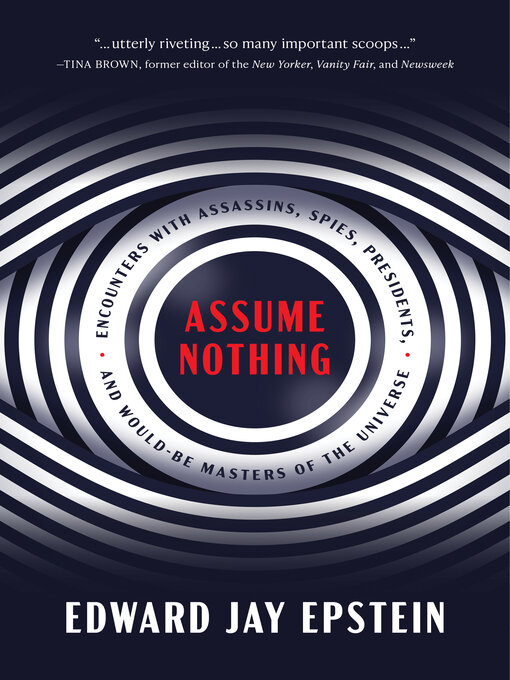Curiosity led Edward Epstein to investigate some of the greatest political mysteries of our time, such as the JFK assassination in Dallas, the Vatican banking scandal in Rome, and the diamond cartel in South Africa. Seeking more information, he often found himself a fly on the wall at the highest reaches of the establishment, observing how presidents, tycoons, bankers, and media moguls secretly greased the wheels of power. This memoir recounts his life as a pursuer of lost truths.
Some accuse Epstein of being a conspiracist, but that is incorrect. He is a puzzle solver. Instead of accepting the received wisdom, he searches for the missing pieces of the picture, such as the autopsy photographs of President John F. Kennedy that were kept from the investigation conducted by the Warren Commission. Finding suppressed or overlooked evidence may result in overturning an established narrative, as happened with the publication of Inquest, Epstein's book about the official probe into the JFK assassination. But that is very different from looking for a conspiracy.
Sometimes, Epstein's work has in fact uncovered a deep conspiracy, as with the world diamond cartel. Other times, it has discredited belief in a conspiracy, as when he delved into the murders of numerous Black Panthers. After his findings were published in the New Yorker, newspapers including the Washington Post and the Los Angeles Times issued editorial apologies for their own reporting on the murders, which had suggested that an FBI conspiracy was behind them.
Epstein's primary interest has never been to advance an agenda, but rather to spot gaps in the conventional narrative and fill them in. Assume Nothing is the story of a lifelong quest for missing puzzle pieces, and also a story of self-actualization.

